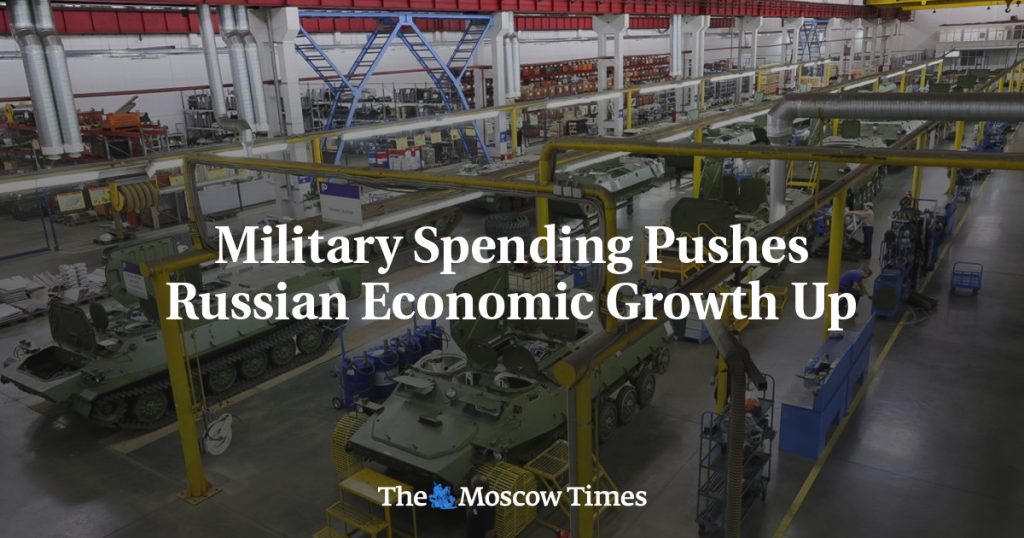In the first quarter of 2024, Russia’s economy grew by 5.4%, according to official statistics. This growth comes amidst heavy militarization of the economy since Russia sent troops into Ukraine in 2022, with military spending reaching over 8% of GDP. Despite concerns about inflation and comparisons to the Soviet Union’s defense spending in the 1980s, President Vladimir Putin denied that the current levels of military spending were unsustainable.
During a state visit to China, Putin emphasized the importance of Russia’s military spending as a “great resource” that should be used efficiently. He also stated that experts believe there is still room for even higher defense spending in Russia’s state finances. In response to U.S. attempts to pressure Beijing over its ties with Moscow, Putin criticized the threats of sanctions on Chinese banks and companies dealing with Russia, calling them “illegitimate.”
Russia’s reorientation of energy exports to countries like China and India has helped mitigate the impact of Western sanctions and prevent a deep recession. China has emerged as Russia’s most important economic ally. However, the increased military spending has led to economic challenges at home, including rising inflation. In April, inflation reached 7.8%, surpassing analysts’ expectations and further from the government’s 4.0% target. The Central Bank raised its key interest rate to 16% in an effort to combat rising prices.
Russian troops recently launched a major offensive in Ukraine’s northeastern Kharkiv region, as Putin aims to outspend Ukraine and its Western supporters to secure victory on the battlefield. This strategy has led to economic difficulties, with sectors not supported by the offensive, such as services and IT, experiencing labor shortages. Many young men have either been drafted, left the country, or joined the booming weapons industry. Despite these challenges, Russia’s strong headline growth and strategic partnerships with China and other countries have helped the economy withstand Western sanctions and continue to grow.


